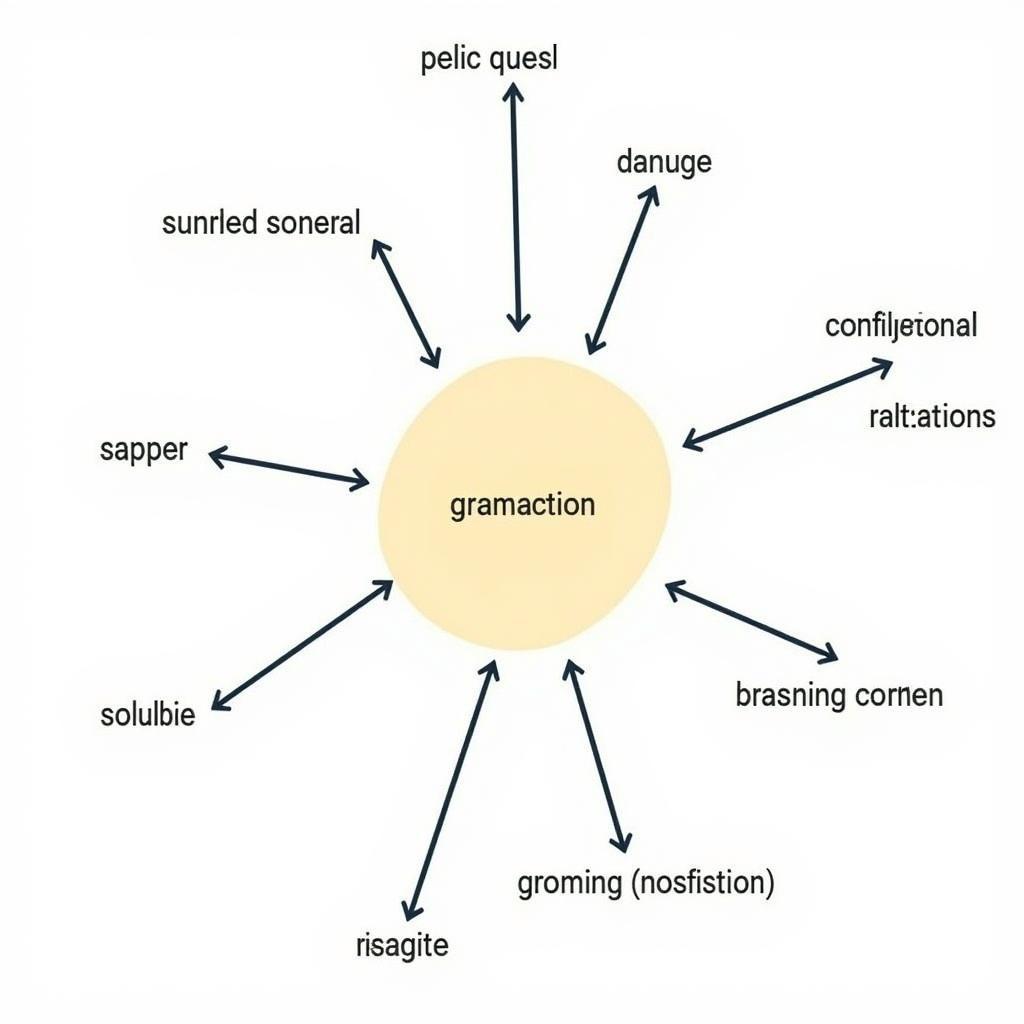Giỏ hàng hiện tại chưa có sản phẩm nào!

Mastering Grammar for IELTS Advanced: Your Key to a Higher Score
Achieving a high score in the IELTS Advanced exam, especially in the Writing and Speaking sections, requires a strong command of English grammar. This article will provide you with valuable insights and practical tips to enhance your grammatical accuracy and fluency, boosting your overall IELTS score.
The Importance of Grammar in IELTS Advanced
While vocabulary plays a crucial role in conveying your ideas, grammar provides the structural foundation for clear and effective communication. In the IELTS Advanced exam, examiners assess your ability to:
- Use a wide range of grammatical structures accurately.
- Demonstrate control over complex sentence structures.
- Employ correct punctuation and capitalization.
- Maintain grammatical consistency throughout your writing and speaking.
 IELTS Advanced Grammar Exam
IELTS Advanced Grammar Exam
Common Grammatical Errors to Avoid
Even proficient English speakers make occasional grammar mistakes. However, being aware of common pitfalls can significantly improve your accuracy. Here are some areas to pay close attention to:
- Subject-verb agreement: Ensure that the verb agrees with the subject in number (singular or plural). For example, “He walks” but “They walk.”
- Tense consistency: Maintain a consistent verb tense throughout your sentences and paragraphs. Shifting tenses unnecessarily can create confusion.
- Article usage: Use articles (a, an, the) correctly. This is a common area of difficulty for non-native speakers.
- Prepositions: Pay attention to the correct use of prepositions (in, on, at, to, for, etc.). Prepositions can significantly alter the meaning of a sentence.
- Pronoun reference: Ensure that pronouns clearly refer back to the nouns they replace. Ambiguous pronoun references can lead to misunderstandings.
Advanced Grammatical Structures to Master
To excel in the IELTS Advanced exam, you need to showcase your ability to use a variety of complex grammatical structures effectively. Some key structures to focus on include:
- Complex sentences: Combine independent and dependent clauses using conjunctions (although, because, while, etc.) to create sophisticated sentences.
- Conditional sentences: Use conditional clauses (if, unless, provided that) to express hypothetical situations and their consequences.
- Passive voice: Employ the passive voice appropriately, particularly in academic writing, to emphasize the action rather than the doer.
- Relative clauses: Use relative clauses (who, whom, whose, which, that) to provide additional information about a noun or pronoun.
- Reported speech: Accurately report what someone said using appropriate reporting verbs and changes in tense and pronouns.
 Mastering Advanced Grammar Structures
Mastering Advanced Grammar Structures
Strategies to Improve Your Grammar
Improving your grammar requires consistent effort and targeted practice. Here are some effective strategies:
- Read extensively: Reading high-quality English texts exposes you to correct grammar usage in context.
- Practice writing regularly: Set aside dedicated time for writing practice, focusing on different essay types and topics.
- Seek feedback: Ask a teacher or a native speaker to review your writing and provide constructive criticism.
- Use grammar resources: Utilize grammar books, online tools, and mobile applications to reinforce your understanding and identify areas for improvement.
- Record yourself speaking: Listening back to your recordings can help you pinpoint grammatical errors in your spoken English.
Conclusion
Mastering grammar is essential for achieving a high score in the IELTS Advanced exam. By understanding the importance of grammar, avoiding common errors, and mastering advanced structures, you can significantly enhance your writing and speaking skills. Remember to practice consistently, seek feedback, and utilize available resources to refine your grammatical accuracy and fluency. With dedicated effort, you can confidently approach the IELTS Advanced exam and achieve your desired results.
FAQs
1. How much does grammar contribute to my overall IELTS score?
Grammar constitutes 25% of your score in both the Writing and Speaking sections of the IELTS Advanced exam.
2. Is it necessary to use very complex grammar to get a high score?
While using a range of complex structures is encouraged, it’s more important to use them accurately and appropriately. Clarity and accuracy are prioritized over excessive complexity.
3. What are some good resources for practicing IELTS Advanced grammar?
Some recommended resources include Cambridge IELTS practice books, online grammar checkers like Grammarly, and IELTS preparation websites.
4. How can I improve my grammar if I don’t have access to a teacher?
Utilize online resources, grammar books, and language exchange platforms to connect with native speakers and receive feedback on your writing and speaking.
5. What are some common mistakes to avoid when using articles?
Common errors include using the definite article “the” when referring to things in general, omitting articles before singular countable nouns, and using articles before uncountable nouns.
For further assistance with your IELTS preparation, consider exploring our other helpful resources:
Don’t hesitate to reach out for personalized guidance and support. Contact us at Số Điện Thoại: 0372960696, Email: tuyet.sixt@gmail.com Hoặc đến địa chỉ: 260 Cầu Giấy, Hà Nội. Our dedicated team is available 24/7 to assist you on your journey to IELTS success.